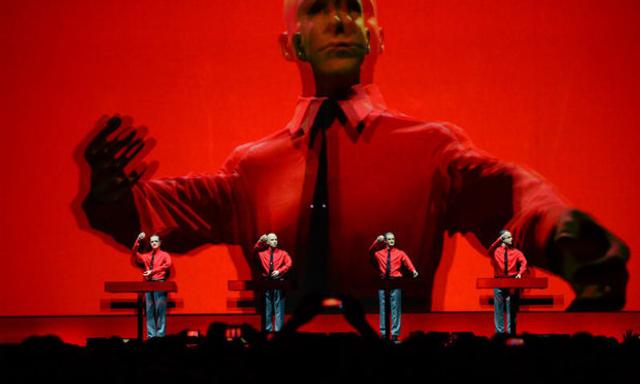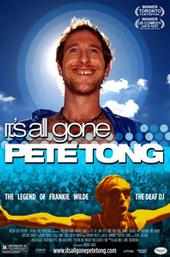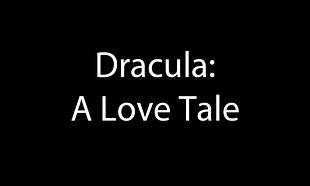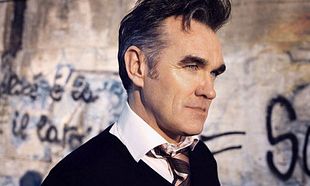Electronic music as a genre is no Internet-era fad. Obviously, it's become infinitely easier to get your hands on music over the last fifteen years or so - but artists have been innovating for decades, as synthesisers became more popular, turntables became more accessible and studio gadgets became increasingly more state-of-the-art.
Below, we take a look at some of the biggest players on the electronic music scene; these are some of the artists who provided the building blocks for EDM as we know it today.
GIORGIO MORODER
If the sign of a good song is one that can traverse decades and still sound box-fresh, then Donna Summer's 'I Feel Love' (1977) is what you might call a bloomin' good song. It was co-written and co-produced by Italian svengali Moroder, who has been at the forefront of electronic music since the 1970s. He has scored numerous soundtracks, produced for Bowie and Blondie and arguably initiated the synthpop movement. At the tender age of 75, he's still making great music; in fact, he's just released his first album in thirty years, 'Déjà vu'. But this gem remains the jewel in his crown, even almost four decades later.
**
PAUL OAKENFOLD
Londoner Oakenfold may not be a big a player on the scene these days as he once was, but back in the late 1980s and the 1990s, he was one of the world's biggest – largely thanks to his pioneering slots at the famous Heaven nightclub (which he co-ran) and the foundation of Perfecto Records. His own work over the years has been coloured by his eclecticism within dance and trance music; he's worked/collaborated with everyone from U2 to Happy Mondays and in 1995, he broke new ground by becoming the first DJ to play the main stage at Glastonbury (Kanye's got nothing on this guy). Put it this way: if something big was happening in dance music in the UK in the 1990s, Oakenfold probably has a connection to it in some way. A new album, 'Pop Killa', is reportedly due next year.
**
PETE TONG
Now 54, Tong is of the same generation as Oakenfold and the likes of Carl Cox, Richie Hawtin and Judge Jules, and has been just as influential as on the techno and rave scenes over the years – if not moreso. One of the world's most recognisable DJs (partially down to that 'It's all gone Pete Tong' phrase), at least one of his 'Essential Selection' and 'Essential Mix' albums - which are broadcast on BBC Radio 1 and have showcased some of the biggest names in dance music over the years - will be found in the record collection of any discerning dance music fan.
**
KRAFTWERK
Where do you start with Kraftwerk? You can only imagine being around in the 1970s when the Germans first burst onto the scene with this strange, rhythmic brand of electronica that was dubbed 'krautrock'. Over the last 45 years, they've pushed so many boundaries of the genre within the walls of their famous Kling Klang studios that it's difficult to absorb just how influential they've really been. The word 'icon' is overused when it comes to musicians, but Kraftwerk are without doubt, icons of electronic music. More importantly, they're still bloody cool.
**
JEFF MILLS
Mills didn't earn the nickname 'The Wizard' for no reason. While acts like Frankie Knuckles and Derrick Carter were blazing a trail on the nearby Chicago house scene around the same time, Detroit native Mills began his career in the 1980s at the forefront of the Detroit techno scene, his talent for mixing unparalleled at the time. His various relocations and projects – he's been resident at iconic Berlin club Berghain and is currently in residence at the Louvre Museum in Paris - have inspired his huge body of work across the last three decades, making him one of the most influential techno artists ever. Hell, even his fellow Detroit native Eminem namechecked him in a song.
**
THE PRODIGY
By the early to mid-1990s, rave culture had taken off in a huge way. At the vanguard of the UK's rave scene were The Prodigy: four young Essex lads barely out of their teens, but who were making some incendiary tunes. They may be best known for later songs like 'Breathe' and 'Firestarter', but their early stuff – particularly their 1992 debut 'Experience' and to an extent, 1994's 'Music for the Gilted Generation' – perfectly captured that era of the post-hardcore rave scene. They may not be the innovators they once were, but those albums leave a legacy to be reckoned with.
**
DAFT PUNK
It's easy to forget just how influential Daft Punk have been over the last two decades, particularly since they're still releasing consistently good albums. But for a generation – particularly the younger generation of EDM artists currently breaking through – the French duo were pioneering. Their 1997 debut 'Homework', which had songs like 'Around the World', 'Da Funk' and 'Alive' on its tracklisting, was revolutionary – breathing new life into electronica, making it accessible to a mainstream audience yet also staying true to its traditions. And that's before mentioning later belters like 'One More Time', 'Harder, Better, Faster, Stronger', songs that have become staples in the set of any electronica DJ worth his or her salt.
World class EDM brought to you by New Smirnoff Ice Double Black
Enjoy SMIRNOFF sensibly. Visit DrinkAware.ie.
.jpg)











































































